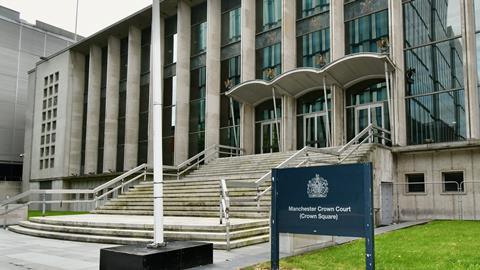Since the beginning of the coronavirus pandemic, courts and tribunals have been under considerable strain to ensure that justice continues to be upheld while limiting the spread of the virus. Video hearings via Skype and Zoom have become the ‘new normal’ in litigation, with all participants encouraged to attend remotely. Recent changes to government guidance have meant most court buildings are now open, with 66 Crown courts resuming jury trials. Despite the easing of lockdown rules, issues remain, including quarantine confusion, a lack of communication and, still, the need to prevent the virus spreading.
To quarantine or not?
The government recently released a list of countries holidaymakers can travel to without the need to self-isolate upon return to the UK. This list is under constant review with countries added and removed depending on the spread of Covid-19. However, despite a mandatory 14-day quarantine for those returning from non-exempt countries, barristers, solicitors and court users can break quarantine to attend tribunals or hearings.
The decision to allow individuals involved in proceedings to break quarantine is backed by the exemptions listed in the Health Protection (Coronavirus, International Travel) (England) Regulations 2020. Section 4 (9) states that those who are required ‘to fulfil a legal obligation… or to participate in legal proceedings’ are exempt from quarantine measures, meaning that advocates and court users can attend court to attend a tribunal or hearing.
Law Society president Simon Davis said: ‘I would urge anybody in this situation to consider fully the potential health implications for other court users if they were to break their self-isolation period to attend in person.’ Breaking quarantine to attend legal proceedings places other court users, particularly those in a vulnerable category, at wider risk of contracting and spreading the virus.
Protecting the vulnerable
Studies have shown that the pandemic has a disproportionate impact on black and minority ethnic groups. Where ethnicity is known, there were at least 3,876 deaths in England by 9 June 2020.
A 2019 study established that 20% of Crown court defendants are BAME. With those of an ethnic minority background being more at risk during the pandemic, practitioners and court users who identify as BAME are more at risk from people breaking quarantine to attend court.
Alongside those of a BAME background, the elderly, and anyone with an underlying health condition or with self-isolating vulnerable family members are also at higher risk.
Advocates and court users choosing not to self-isolate should carefully consider a decision to attend hearings, particularly where attendance may pose a threat to anyone who falls within the higher risk category for contracting Covid-19.
Breaking quarantine to attend legal proceedings places other court users, particularly those in a vulnerable category, at wider risk of contracting and spreading the virus
Communication is key
If advocates and court users choose not to quarantine following travel to and from a non-exempt country, clear and effective communication by the courts will be key to ensure the wellbeing of all court users.
Manchester Crown Court was recently closed after six staff members tested positive for Covid-19. The way in which both advocates and court users found out about the outbreak has been subject to criticism from members of the Northern Circuit. Leader Lisa Roberts QC established that the court was closed following social media posts by a journalist and described this as ‘unacceptable’ and a ‘serious issue’.
Maintaining public trust during the pandemic is a necessity to ensure the courts continue to serve their purpose. Poor communication surrounding any positive Covid-19 tests could negatively affect public perception, resulting in people not wanting to use court.

Ensuring safety in the future
As Davis said, ‘allowing people to break quarantine to attend court and not having effective systems in place to communicate outbreaks in the court puts lives at risk’. It is evident that HM Courts & Tribunals Service needs to ensure clear and effective communication is maintained through track-and-trace methods while adhering to government guidance on social distancing. In the wake of the closing of Manchester Crown Court, HMCTS confirmed it has approached stakeholders for feedback to allow them to improve processes. Establishing protocol in the wake of the pandemic will help to ensure public trust in the court system is maintained while allowing advocates to continue their work in an environment that maintains a high level of safety.
Sinead McGrath, a paralegal at Eversheds Sutherland in Manchester, is a Junior Lawyers Division council member
































No comments yet